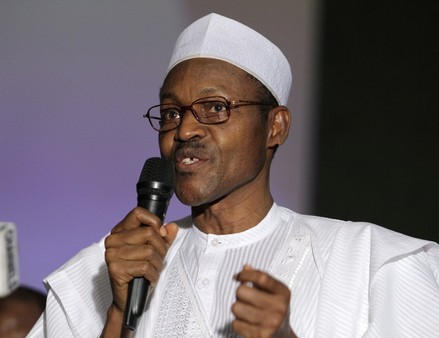Politics
“Deteriorating Economy & Security” Buhari Explains Why He Changed His Mind To Contest For Presidency

Former Head of State and presidential aspirant of the All Progressives Congress (APC), General Muhammadu Buhari, has explained why he decided to vie for the highest political office in the country, after saying that he would not do so again
In a letter he wrote to some prominent Nigerians, intimating them of his aspiration an asking for support, Buhari said he was concerned about the deterioration of the economy and security in the country, among others, and therefore, wants to offer his services to arrest the situation.
Ahead of Buhari’s formal declaration for the presidency tomorrow, at the Eagles Square, in Abuja. Buhari statements reads as follows;
“Just before the 2011 elections, which I contested, I said publicly, in a fit of pique, that that was my last outing as a presidential candidate. Days after that statement torrents of delegations, starting with one from Niger State led by Alhaji Umar Shu’aibu, then chairman of CPC, including a serving senator, three members of each House of Representatives and Niger Sate Assembly expressing strong opposition to my intentions. Another delegation from Kano State, led by General Abdulmalik Jibrin consisting of delegates from most of the local governments in the state came to express similar views. Since then, hardly a week passes without a concerned group or individuals visiting me and arguing that I was wrong to leave competitive politics.
“The stock answer I have always given is that we should first build a bigger party, a viable political platform before I could summon the courage to change my mind. In the meantime, all the indices of good government have deteriorated: insecurity, unemployment, power, failures, educational standards, health standards, the justice system. Wherever you turn, governance has taken a turn for the worse. Above all, corruption has taken a life of its own eating into every institution and every sector.”
Buhari continued: “As responsible citizens all of us have a duty to contribute in whatever way we can to put our country in order.”
Buhari said happenings in the country “require even greater resolve and efforts to put our country in order. We face today not only a security situation pretty much out of control, but an economic situation dire because of disparity in incomes and opportunities. In the circumstances we all ‘have to do something’ to help our country.”
“In the face of such a situation, one cannot say ‘I am tired’ and wash his or her hands off responsibility. Fatigue is not an option, in the face of injustice.”
Expressing confidence that with the APC, Buhari said: “Accordingly, in the last six months, we have been working very hard to bring major opposition political parties together to form a new platform to challenge and defeat PDP in 2015. The success of the exercise has given millions of Nigerians renewed hope that the APC has presented a different and a better option to the Nigerian people.”
He went on to lament over the increasing state of corruption:
“Since 2003, successive PDP governments, having rigged themselves into office have become bolder in trampling on the rights of Nigerians; corruption is their capital and force, their raw-material. The populace is becoming increasingly impoverished with unemployment, especially youth unemployment at an alarming rate and with the dire security situation social cohesion is under grave threat.”
“If my appreciation of the situation is correct, then no patriotic person will shy away from responsibility. I believe APC, as it now stands, is capable of dislodging the PDP government, in a free and fair election. Accordingly, after extensive consultations I am putting my name forward to my party, APC, for nomination to contest the presidential election in 2015. With the wealth of capable individuals in the party and the discipline and competence we can bring, we can make a radical change for the better to our country.”
He identified security, education, transportation, economy and strengthening weak institution as his major priorities.
On security, he stated that holistic approach was needed, with the coordination of information from the grassroots, local authorities, state governments, Federal Government, West African neighbours and international community, to tackle the problems.
Buhari said that the education system was the most critical of national crises: “A closer look at policy options suggests in particular that for the 21st century our educational goals should be tailored to our developmental needs.”
He stated that there was need to strengthen and empower the police, armed forces, special services, civil services, judiciary, the Independent National Electoral Commission (INEC) and the Customs “to act impartially in the discharge of their constitutional duties, rather than as wings of PDP.”
On the economy: “A look at the Nigerian condition will suggest that central government’s economic policies should be tailored towards mass employment, with agriculture, industries getting top priority. Policies modeled on more advanced countries with different development profiles are totally unsuitable for Nigeria. Countries, such as India, Malaysia and Singapore are reaping the benefits of home – grown solutions and policy implementation. No policy is right which helps keep foreign factories open and Nigerian factories closing.
“In addition, we intend to address the enormous economic disparities between regions of the country and huge income inequalities by enabling environment for farmers, market women, small scale entrepreneurs, such as tailors, vulcanizers, washermen, brick makers, petty traders, kiosk owners, barbers to enhance their incomes and get integrated into the larger economy.”






